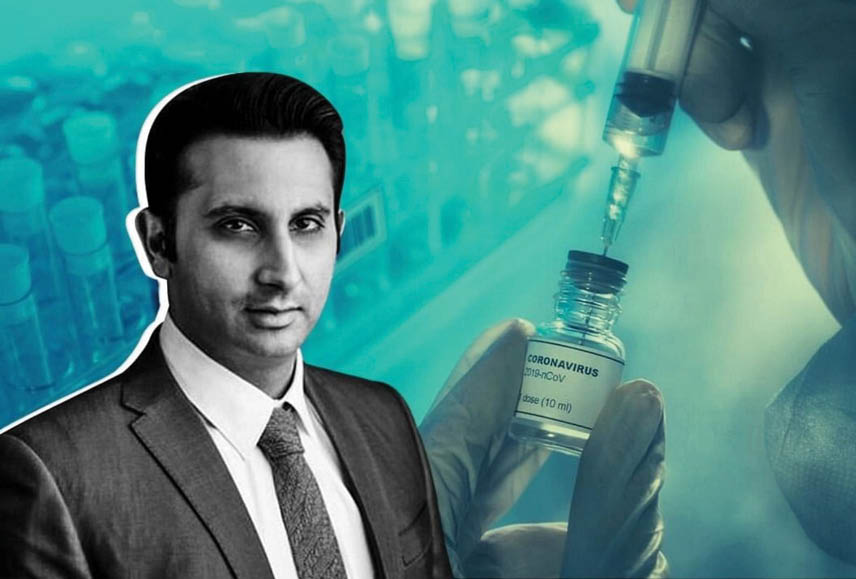On 30th June, the CEO of world’s biggest vaccine maker – SII (Serum Institute of India), Adar Poonawalla said that they were expecting to receive approval from the European Medicines Agency (EMA) for their vaccine – Covishield, within a month, following which Indians vaccinated with two doses of Covishield, wouldn’t face any travel bar in European Union countries.
The European Union is rolling out a ‘Green Pass’ to determine who can freely travel to member countries. Covishield and Covaxin, India’s two primary vaccines, don’t feature in it. Covishield’s exclusion has raised a few eyebrows as it is the same Astrazeneca-Oxford vaccine, but developed in India. The European Medicines Agency (EMA) clarified that it did not receive any application from SII and Covishield does not have a marketing authorisation in the EU. However, it said that the member countries of the union are free to include Covishield in their Green Pass, as Covishield is approved by the World Health Organization. The Green Pass is being implemented from 1st July, 2021.
Speaking at the India Global Forum 2021, Adar said there was no controversy and that the issue had been just blown out of proportion. “The EMA is correct in asking us to apply, which we have through AstraZeneca a month ago, and that process has to take its time… An approval process even with UK MHRA, WHO took its time and we have applied to the EMA… In a month we are confident the EMA will approve Covishield. There is no reason not to as it is based on AstraZeneca data and our product is identical to AstraZeneca more or less,” said Adar. The green pass, which will be required for travel in the EU from July 1, 2021, does not currently recognise Covishield, developed by AstraZeneca and Oxford University.
He also said that the issue of vaccine passports was a different matter and is based on the degree of reciprocity between the countries. On the issue of waiving of intellectual property rights on vaccines to increase the supply, Poonawalla said that this would perhaps not solve the immediate shortage of vaccines, but that it was a good strategy in the long term, to be prepared for future pandemics.
As regards SII’s challenge to stop exporting Covishield due to its prior commitments, Adar said SII did it in the wake of the pandemic’s second wave hitting India. Decision of stopping exports was particularly stressful, “because it was not just our partner AstraZeneca that needed vaccines for other parts of the world, it was COVAX, it was other countries we had commitments with; We had taken advance funding, we had to return some of that funding and really explain to other world leaders as well that there was really no choice at that moment,” he shared.
“We had to tell them that we really had to support our nation at that moment for a few months and that we would get back to them. It was really difficult for everyone to digest that, but slowly as they realised what was going on in India everyone was really supportive and understanding… India will go back to supporting Covax in two to three months’ time and start re-exporting vaccines. By the end of the year, there will be so many doses coming out of India… a large part of the Indian population should be vaccinated,” he added. SII has ramped up production from 50 million Covid vaccine doses per month in January, to 90 million in June. However, Adar has warned that the pandemic may not be over for up to four years.
With regard to Covishield’s effectiveness against the emerging Delta Plus variant, while the Union Health Ministry released a statement saying that the Covid-19 vaccines – Covishield and Covaxin – were effective against the Delta variant, health experts and virologists, on the other hand, have hinted that the Delta Plus variant of Covid-19 could evade both vaccine and infection immunity.
- તમારી જાત પર વિશ્વાસ રાખો અને લડ્યા વગર હાર ન માનવી જોઈએ, સકારાત્મક વિચારસરણી દરેક સમસ્યાને દૂર કરી શકે છે - 23 November2024
- સંજાણ ડેની 104માં વરસની ઉજવણી - 23 November2024
- 2024 ઈરાનશાહ ઉદવાડા ઉત્સવ આવી ગયો! - 23 November2024
